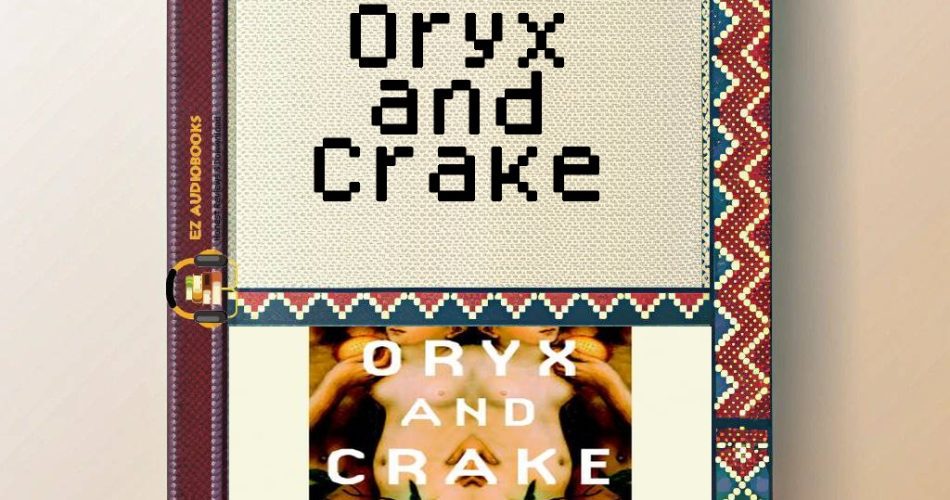Audiobook Sample
Listen to the sample to experience the story.
Please wait while we verify your browser...
- Title: Oryx and Crake
- Author: Margaret Atwood
- Narrator: Campbell Scott
- Length: 10:30:25
- Version: Abridged
- Release Date: 06/05/2003
- Publisher: Random House (Audio)
- Genre: Science Fiction & Fantasy, Fiction & Literature, Literary Fiction, Apocalyptic & Dystopian
- ISBN13: 9.78E+12
Let me tell you why Margaret Atwood’s “Oryx and Crake” audiobook, narrated by Campbell Scott, has been living rent-free in my mind since I first pressed play. This isn’t just another dystopian narrative – it’s a full sensory experience that lingers like the afterimage of a brilliant but disturbing dream.
“”The Listening Experience That Changed Me””
Remember when we all collectively realized during lockdown how audiobooks could transport us beyond our four walls? That’s exactly what happened when I queued up “Oryx and Crake” during my nightly walks through eerily empty city streets. Scott’s voice became my companion through Atwood’s unsettling vision, making the isolation of protagonist Snowman feel viscerally real. The timing was uncanny – listening to descriptions of abandoned urban landscapes while navigating my own quiet metropolis created a haunting resonance I’ll never forget.
“”Campbell Scott’s Narration: A Masterclass in Subtlety””
What makes this audio performance extraordinary is how Scott handles Atwood’s complex tone. The novel swings between:
– Clinical detachment (those chilling scientific descriptions)
– Profound grief (Snowman’s mourning for Oryx)
– Dark humor (the corporate dystopia satire)
Scott modulates his delivery with surgical precision. His voice for Crake carries just enough arrogance to make your skin crawl, while his Oryx portrayal maintains that elusive quality that keeps you questioning her motives. The children’s voices? Chillingly innocent.
“”Why Audio Enhances Atwood’s Worldbuilding””
Atwood’s genius lies in her details – those casually dropped bits of worldbuilding that accumulate into dread. In audio format, lines like “”The wolvogs were getting bolder”” land differently. You don’t skim past the implications. Scott’s deliberate pacing ensures each horrifying revelation in the Paradice Project unfolds with maximum impact.
“”Cultural Relevance That Feels Eerily Prescient””
Analyzing this in 2024, I’m struck by how Atwood predicted:
✔ Corporate-controlled science (hello, big pharma parallels)
✔ Genetic engineering ethics (CRISPR anyone?)
✔ Climate collapse denialism
The scene where Snowman remembers pre-collapse memes about coastal cities flooding? I had to pause and text my podcast producer immediately – we ended up doing a whole episode on dystopian fiction as cultural prophecy.
“”Personal Connection: Why This Stays With You””
After finishing, I did something I rarely do – immediately replayed key chapters. Not just for analysis, but because Snowman’s memories of his mother’s activism mirrored my own climate anxiety. Atwood’s vision of academia complicit in corporate overreach hit particularly hard after my MIT days studying under professors with biotech patents.
“”The Verdict: Who Should Listen?””
Perfect for fans of:
– Psychological sci-fi (think “Annihilation” meets “Black Mirror”)
– Unreliable narrators
– Stories that unpack trauma through non-linear storytelling
Maybe skip if: You want escapism – this will make you side-eye every biotech headline forever.
“”Audiobook-Specific Benefits””
The audio format particularly shines in:
1. Maintaining tension during flashback transitions
2. Highlighting Atwood’s poetic language (you “hear” the rhythm)
3. Making scientific jargon accessible through Scott’s clear enunciation
“”Final Tech Note””
For optimal experience: Listen with noise-canceling headphones. Those quiet moments when Snowman hears animal hybrids in the distance? Atmospheric AF.
Until next time, keep questioning the future – preferably with an audiobook in your ears. -Sophie ✨ (DM me your “Oryx and Crake” hot takes @FutureOfStories)
Sophie Bennett

